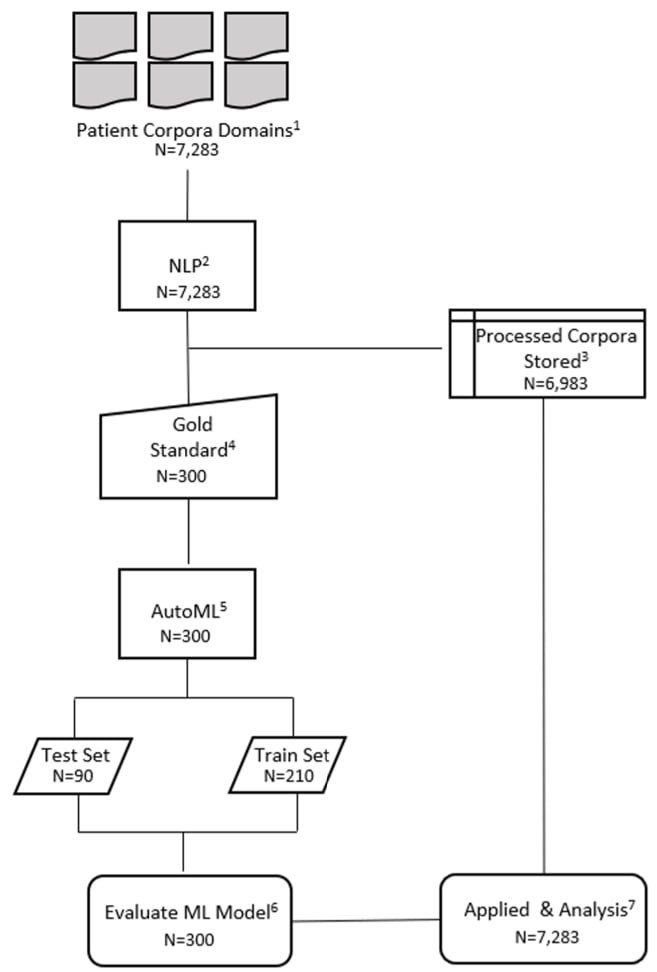Session Information
Session Type: Poster Session C
Session Time: 1:00PM-3:00PM
Background/Purpose: Patients with chronic medical conditions like rheumatoid arthritis (RA) have a wealth of clinical data stored within their electronic medical records (EMR). Artificial intelligence (AI) approaches using natural language processing (NLP) and machine learning (ML) allow us to leverage the large amount of data held within EMRs to classify disease processes, predict outcomes, and assist with clinical decision making. Our goal was to train and validate a ML model that could accurately identify patients with RA, with the secondary goal of sub-classifying RA based on seropositivity and erosive disease.
Methods: Data from 7283 patients within the Brown Physicians Inc.(BPI) organization was curated and loaded onto the Microsoft PowerBI® platform. A subset of 300 patients was chosen to develop the initial model. Of the 300 patients, 50% included patients with a single ICD code for RA. The physician notes, radiographic, laboratory, and prescription data from these patients were manually reviewed by faculty from the Division of Rheumatology to identify true RA patients and further classify them based on seropositivity and the presence of joint erosions. This data subset was then split into a training (70%) and testing set (30%). Keyword extraction was performed using the Microsoft Azure ML cognitive services. The Pre-processed text from the EMR and the key phrases then served as inputs to a supervised auto-machine learning model (AutoML) aimed at accurately identifying patients with RA. The validated model will then be applied to the full cohort of 7283 patients to identify all RA patients within the study population.
Results: Preliminary results show the ensemble model to be very accurate, with an AUROC (area under the receiver operating characteristic) of 99% with regards to the identification of RA patients. Our next steps would involve applying the model to the full dataset of 7283 patients and manually reviewing the patients identified to ensure fidelity.
Conclusion: Our preliminary results show that it is possible to develop an accurate model to identify patients with RA from a mixed outpatient cohort. Our future aim of developing a secondary model to subclassify patients based on seropositivity and joint erosions will provide more clinically relevant information when applied to the patients identified as having RA.
To cite this abstract in AMA style:
Gilvaz V, Reginato A, Dalal D, Crough B. Machine Learning Model to Accurately Identify Rheumatoid Arthritis Patients Using Raw Electronic Health Record Data [abstract]. Arthritis Rheumatol. 2022; 74 (suppl 9). https://acrabstracts.org/abstract/machine-learning-model-to-accurately-identify-rheumatoid-arthritis-patients-using-raw-electronic-health-record-data/. Accessed .« Back to ACR Convergence 2022
ACR Meeting Abstracts - https://acrabstracts.org/abstract/machine-learning-model-to-accurately-identify-rheumatoid-arthritis-patients-using-raw-electronic-health-record-data/

